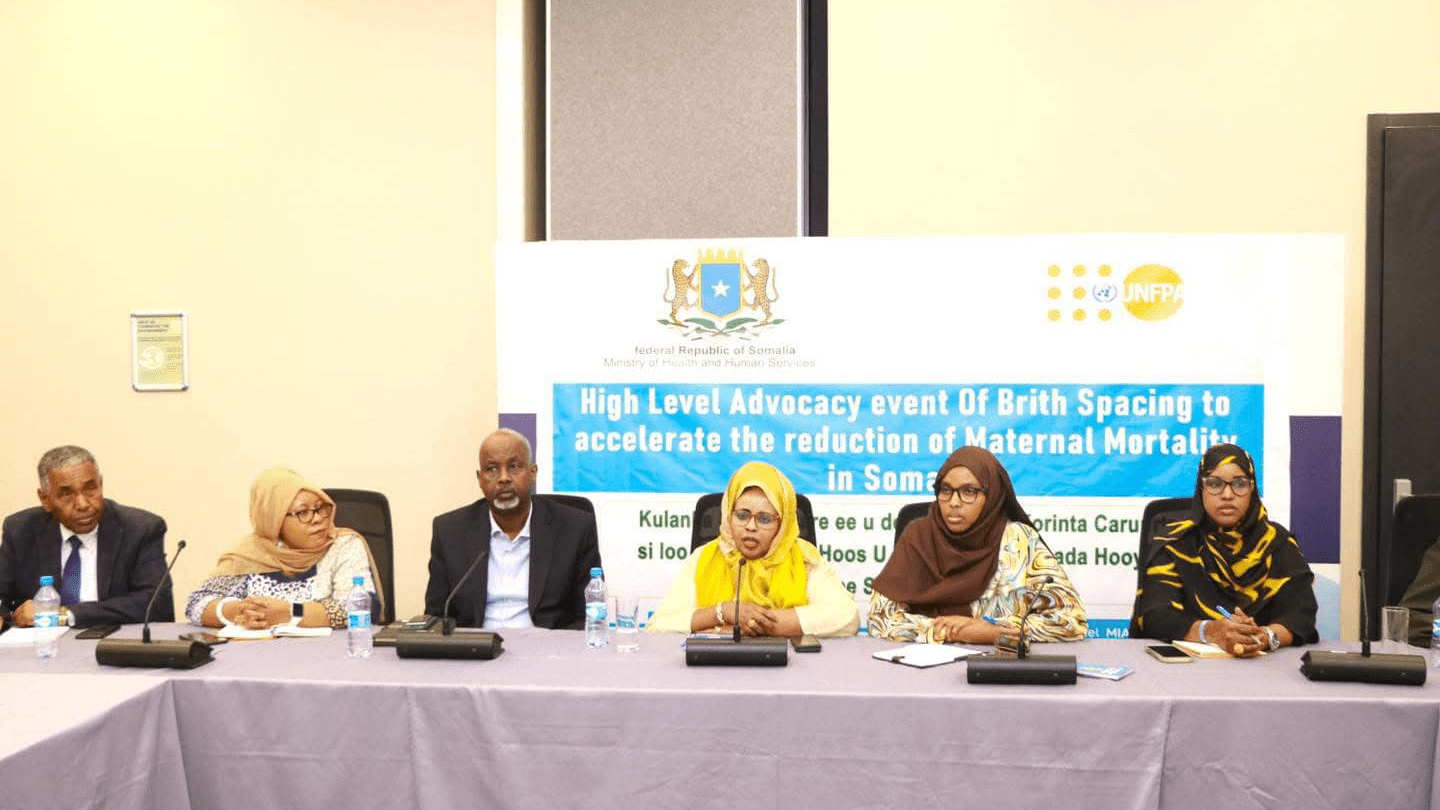The Ministry of Health of Somalia, with support from UNFPA Somalia, recently held an event to emphasize the importance of family planning in reducing maternal and neonatal mortality. This initiative addresses a critical need in Somalia, where many women face life-threatening risks during pregnancy due to limited access to healthcare and family planning services.
Dr. Maryama Mohamed Hussein, the State Minister of Health, highlighted the impact of family planning, stating, “Family planning is not just a health intervention; it’s a lifeline for Somali mothers and newborns. Our government is deeply committed to ensuring every family has access to these vital services to save lives and build healthier communities.”
Family planning plays a key role in improving maternal and child health by helping families make informed decisions about the timing and spacing of pregnancies. This reduces the risk of complications during childbirth and allows mothers to recover fully before subsequent pregnancies. It also contributes to better health outcomes for children by ensuring they are born into families that can adequately care for them.
In many parts of Somalia, access to family planning services remains limited, particularly in remote areas. Efforts supported by UNFPA have started to change this, with pilot programs showing promising results. Clinics offering contraceptives and counseling have reported fewer high-risk pregnancies and improved health outcomes for mothers and babies.
The government and its partners are working to expand these services, ensuring they reach more communities. By scaling up these efforts, Somalia can make significant progress in reducing maternal and neonatal mortality and building healthier families and communities.


